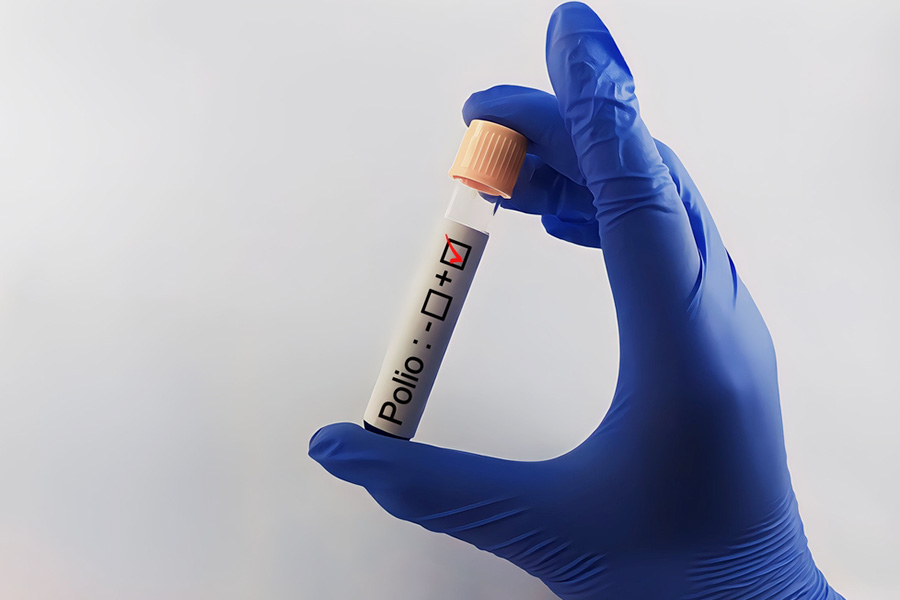An Indian paediatric virologist has asked the World Health Organisation to announce a policy to switch fully to the injectable polio vaccine (IPV) and stop the use of oral polio vaccine (OPV) across the globe, saying this is required for equity in global health.
T. Jacob John, in an open letter sent to WHO director-general Tedros Adhanom Ghebreyesus on Wednesday, has said the WHO has created a situation where the safer but expensive IPV has become a “rich-country vaccine” against polio but “unaffordable” to low-income countries.
“The WHO, the global public health leader, has knowingly created an inequitable world in which poverty is punished with polio caused by vaccine-derived polioviruses (VDPVs)” John wrote in the letter. The term VDPV refers to a rare outcome in which live but weakened polioviruses in OPV shed by vaccinated children regain their virulence and cause disease in other children later.
John has said the continued use of OPV has turned out “hugely tragic” for children impacted by either vaccine-associated paralytic polio (VAPP) — an extremely rare side-effect of OPV in which the virus in the vaccine itself causes polio to a vaccinated child — or by circulating VDPVs.
He has estimated that “at least 30,000 children” have been paralysed over the past two decades.
The WHO had in 1988 announced a plan to eradicate polio worldwide. But by the early-2000s, multiple studies from several countries had flagged concerns about VDPV. John, among other experts, have argued for nearly two decades that the eradication of wild polioviruses is not genuine eradication because OPV carries the risk of causing polio in children through either VAPP or VDPV.
“WHO must no longer cause polio in the name of eradication,” John, who has served on the WHO advisory committee on polio eradication and a WHO working group on polio eradication for many several years. John said he quit the position on account of “uncompromising disagreements”.
The WHO’s polio eradication department has asserted that the eradication initiative’s goal is “to ensure that no child is ever again paralysed by any form of poliovirus, wild or vaccine-associated.”
“Without OPV, however, eradication cannot be achieved,” the department also said via email to this newspaper, which had sought its response to John’s letter. OPV has the unique ability to induce mucosal immunity needed to interrupt person-to-person spread of the virus and has a clear role in this, used in conjunction with IPV, the department said.
Together, the two vaccines offer the best protection to both communities and individual children in low- and middle-income countries, it said. Once the remaining strains of wild poliovirus transmission have been eradicated, OPV use will be withdrawn to eliminate the long-term risk of vaccine-associated polio.
“This is the same strategy that has been used in virtually all of the industrialised world, including the US, Canada, western Europe, Japan, and Australia. “The appropriateness of this strategy and the efficacy of OPV is further underlined by the successful elimination of wild poliovirus transmission from 99 per cent of the world and the eradication of two of the three wild poliovirus strains,” it said.
“This strategic approach continues to be the position of key policy groups globally and regionally, including the Strategic Advisory Group of Experts on Immunisation, the independent global body advising the WHO on immunisation,” the department said.
John’s letter to the WHO DG comes a week after health authorities in India began investigating a suspected case of VDPV in a two-year-old boy in Meghalaya’s West Garo district. This is the first case of polio paralysis since the WHO certified India as having eradicated polio in 2014, three years after the last case in Howrah in 2011.
His letter has called on the WHO to announce December 31, 2026, as the milestone date to stop OPV under the cover of IPV so that the “journey (toward) global eradication along the right path begins on January 1, 2027. Vaccine makers will require a clearly stated WHO policy to invest time, energy and funds to expand IPV production capacity. “Manufacturers must begin upscaling production as soon as possible for which the policy shift must be announced now,” John wrote.
India’s eradication of wild poliovirus, a WHO official had told this newspaper in 2014, was entirely through OPV.











